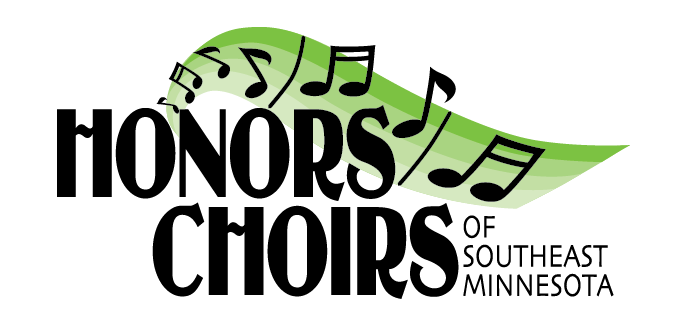January 2017
By Renee Berg
Renee Berg: The big news this year is its Honors Choirs 25th anniversary, and you’ve been inducted into the Minnesota Music Hall of Fame. How do you feel about these milestones?
Rick Kvam: I’m grateful to have worked with so many kind and generous people. It takes a huge collective effort to make a non-profit arts organization like this one work -- board members, volunteers, donors and patrons, administrative staff, a team of conductors and of course the amazing kids. What a blessing to interact with a stream of literally thousands of selfless, enthusiastic people over these years! The only reason I’ve been recognized by the Minnesota Music Hall of Fame is that I’ve had the privilege of collaborating with such a wonderful community.
RB: You founded Honors Choirs, right? What was your vision for it 25 years ago?
RK: Not very focused. I wanted to conduct another group beyond Choral Arts. I knew, both from my own high school choir experience, and from attending national choir conventions, that high school singers were capable of amazing performances if pushed, encouraged and challenged. Once we got the high school choir rolling, it was natural to develop ‘feeder’ choirs to give younger kids preparatory experiences.
RB B: Tell us some then versus now stories about Honors Choirs.
RK: First choir: 29 singers, fit into a cramped church choir room. No concert attire, just coats and ties and dresses (that was later changed, accelerated by the fashion choices of a few of the girls). One choir; I did the accompanying during rehearsal. Now five choirs, team of conductors and administrators, great board (although we had a great board from the very beginning, as well as administration).
RB: When and how did your love for music begin?
RK: My dad and grandfather and older brother were all choir directors. Although my first choir director was my mom, who did the little "cherub" choir at church. She had no formal training, but loved kids, loved to sing.
RB: Is it right that outside of choir you’re a surgeon? If so, where do you work?
RK: No, I’m an ER doctor at Olmsted Medical Hospital.
RB: How many hours do you devote to choir per week?
RK: Forty or so.
RB: What’s the best aspect part of your job?
RK: All the fantastic people, working so kids can bring great music alive.
RB: The worst aspect?
RK: The rules -- attendance, discipline. It’s so terribly hard to find the correct balance between flexibility and asking for a fair commitment from all.
RB: What’s it like working with high schoolers?
RK: Depends on the day. Mostly great, especially these kids. So bright, enthusiastic, sensitive, and full of life.
RB: Concert Choir, which you direct, is competitive. How many kids do you take versus turn away each year?
RK: There's actually a lot of self-selection, so we don't turn away too many -- fewer than 20, sometimes fewer than that.
RB: What’s something your singers would be surprised to know about you?
RK: When I was in junior high, I played clarinet, but I was lazy and never practiced, so I stunk. The director switched me to oboe, which I thought was cool and unique, and I finally got a little motivation. But I still didn't practice enough.
RB: Fellow HC director Nick Johnson jokes about you often during his on-stage concert remarks. Any words you want to get in here about Nick in rebuttal?
RK: There are no words to adequately describe the experience that is Nick Johnson. I will say he is talented, funny, much smarter than he looks, and has a big heart.
RB: How many tuxedos have you worn during your HC tenure? Own or rent?
RK: I just bought a new tux last spring, first one in 30 years. It was past due.
RB: I believe you’re first to arrive and warm up prior to your concerts. Is that right? If so, why do you do this; isn’t it the singers themselves who need to be concert ready?
RK: I like to be quite early, yes. I also have many details that I need to go over in my head, from conducting gestures and cues to logistics of lineup and stage exits to announcements to be made. I do love seeing singers there well ahead of time.
RB: What are your pre-concert rituals, if any?
RK: I like to go to the stage first, and check on risers, piano, mikes, stands, etc. Then mentally go through each piece. And I like to find a little moment alone somewhere to gather myself and be grateful for the privilege of doing this.
RB: You’re said to be rather fastidious. Is that right and if so, how?
RK: Ha, sounds like a euphemism! I do believe that devotion to an art form requires great attention to detail. Some great performers do this totally by intuition and "feel," but, contrary to popular stereotypes, I think that's actually quite uncommon. Artists are sensitized to the power of their medium, and a little obsessed about reliably delivering that "high" that comes from making something beautiful. Long hours of study, analysis, and practice are required. Only when all the basic, technical elements are so solid as to be second-nature, only then can the most free, aesthetic, emotional/spiritual communication occur. When Bobby McFerrin was asked why he is so relaxed in performance, he said, "Because I practice a LOT."



